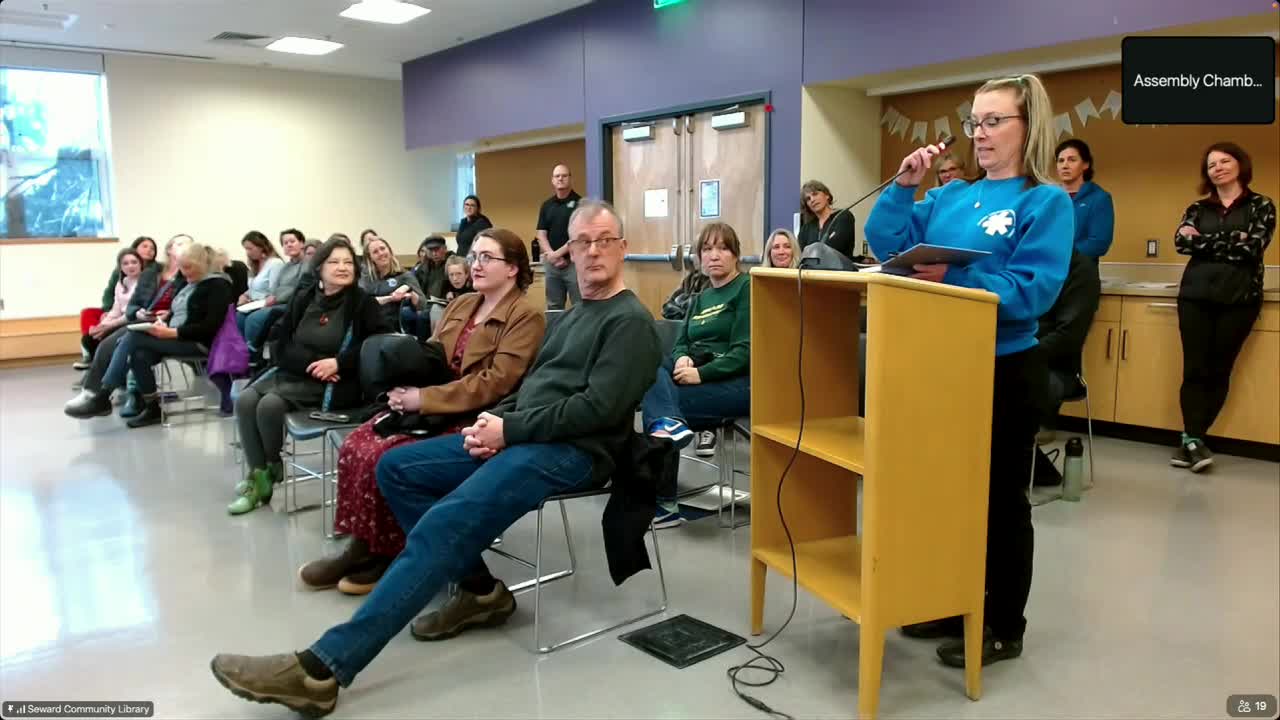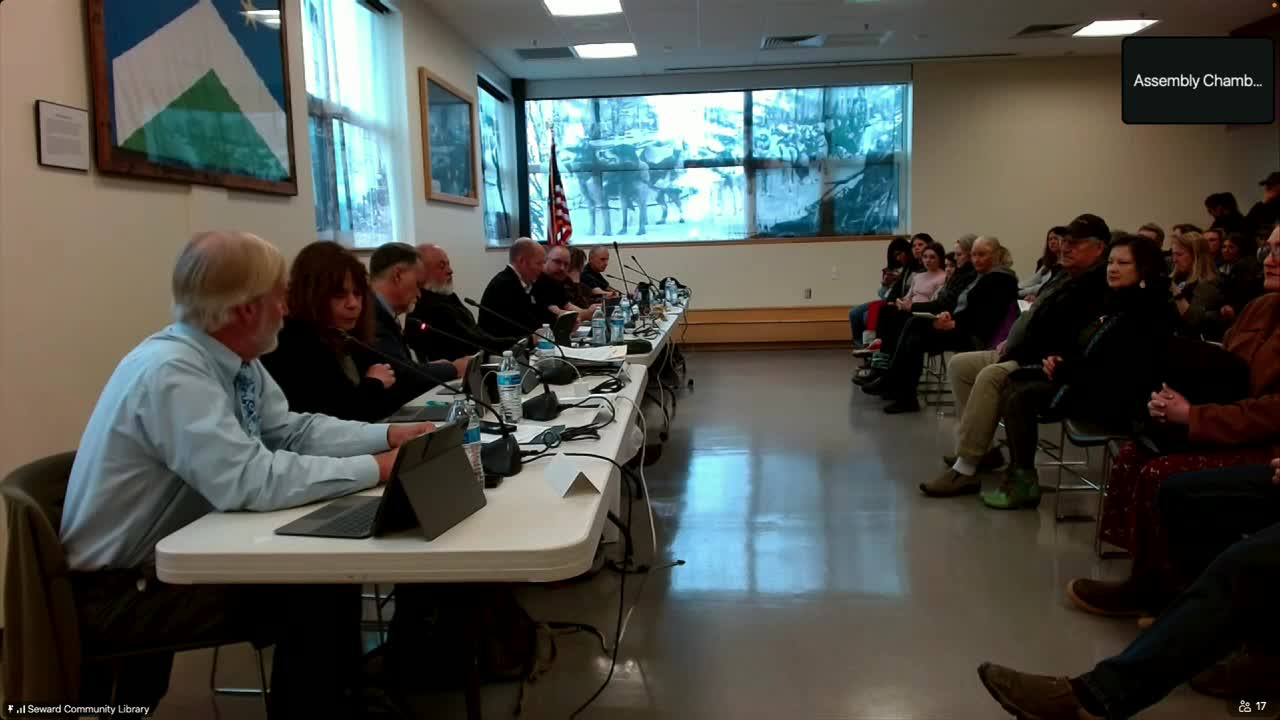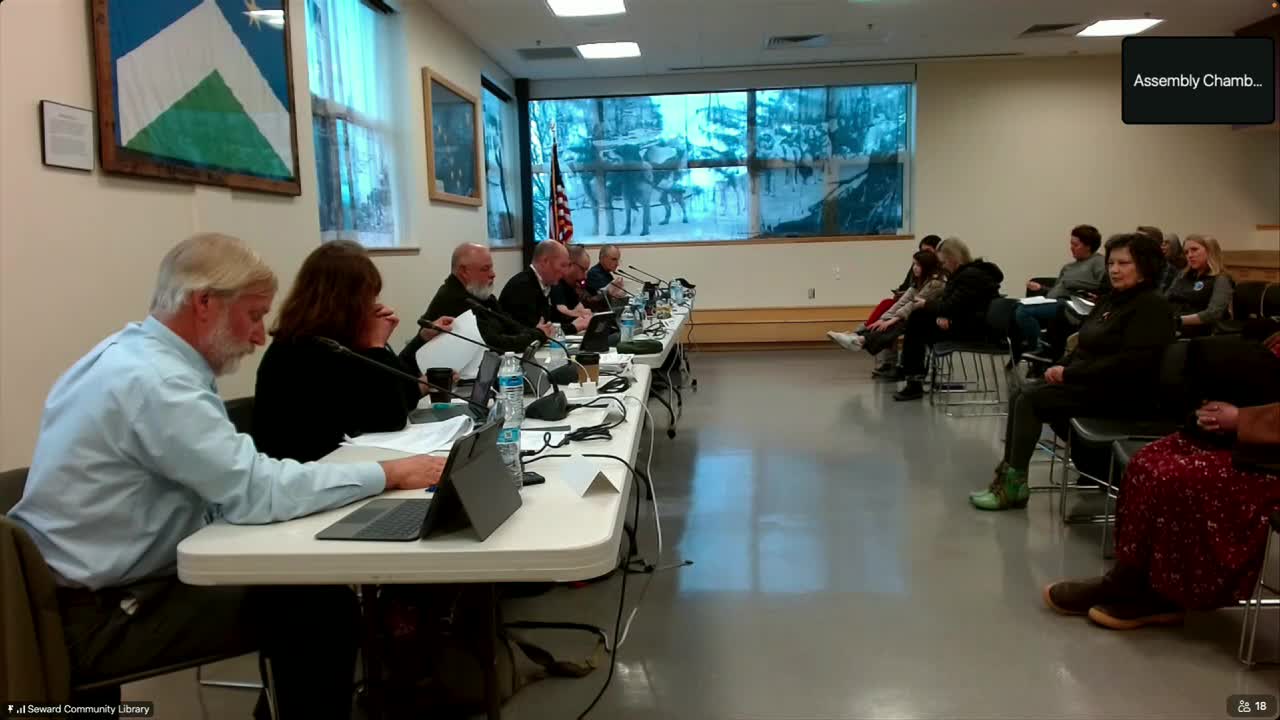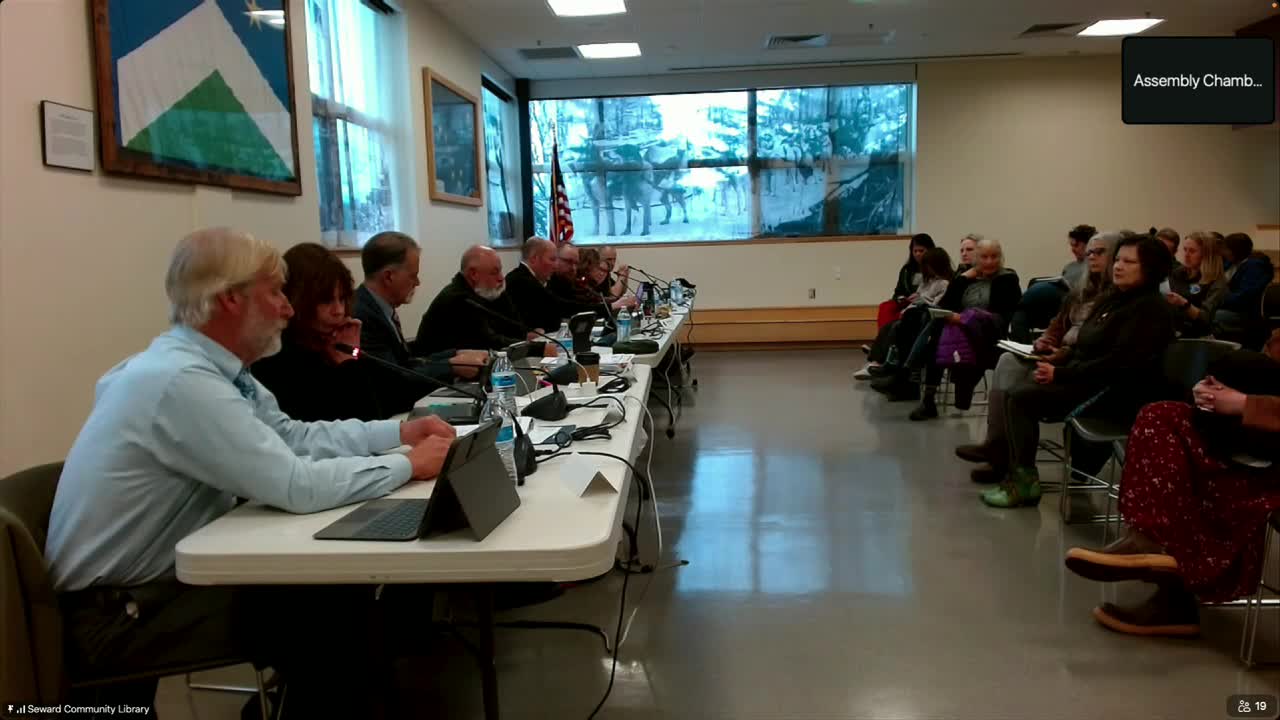Article not found
This article is no longer available. But don't worry—we've gathered other articles that discuss the same topic.

Resident urges borough to avoid duplicating EMS service in Bear Creek, points to Seward Volunteer Ambulance reliability

Assembly approves consent agenda; dozens of residents urge funding schools to full cap

Assembly gives tourism working group 60 more days to finish report

